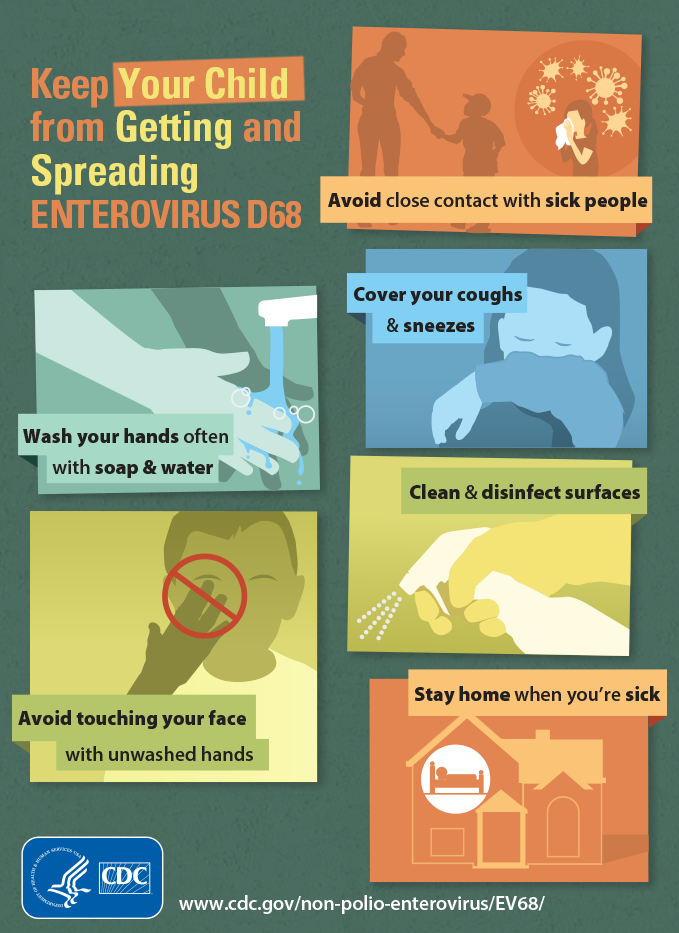A rare respiratory illness sickening children around the country continues to show up in new places. It has been confirmed in 22 states, according to the Centers for Disease Control and Prevention. The disease is an uncommon enterovirus strain — enterovirus 68 — that has not made many appearances since its discovery in 1962. The illness can cause severe breathing problems, which can be particularly dangerous for children with asthma.
Read more from The Washington Post: http://www.washingtonpost.com/news/post-nation/wp/2014/09/19/rare-respiratory-virus-spreads-to-22-states/
What is Enterovirus 68?
Enterovirus D68 is a non-polio enterovirus identified in 1962 but not commonly seen in the United States.
Symptoms of the virus include:
- Fever
- Runny nose
- Sneezing
- Cough
- Muscle aches
More severe symptoms include:
- Difficulty breathing
- Wheezing
Who is at Risk for Enterovirus?
Infants, children, and teenagers are the most likely to contract enterovirus because they have not yet built an immunity from previous exposures. In many cases the symptoms of the disease are mild, though children with asthma may be at a higher risk for severe respiratory illness.
How Can I Reduce My Child’s Risk of Enterovirus?
Since the virus is often spread when an infected person coughs, sneezes, or touches an infected surface, there are several ways to reduce your child’s risk of catching enterovirus.
- Wash hands often throughout the day
- Avoid touching the face
- Avoid sharing utensils or drinks with someone who is sick
- Disinfect surfaces such as toys and doorknobs that the children often come in contact with





